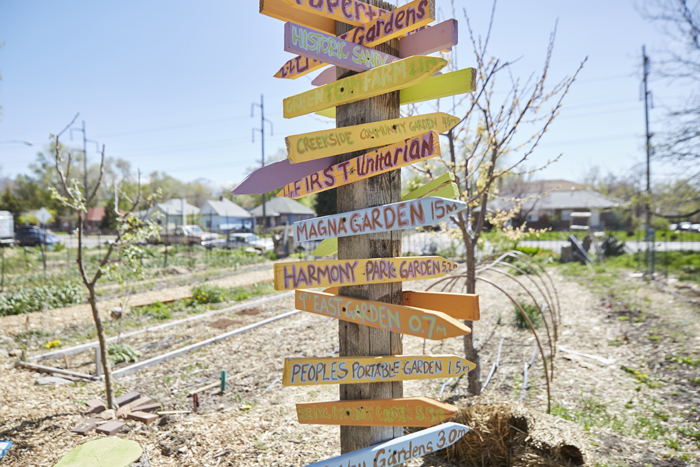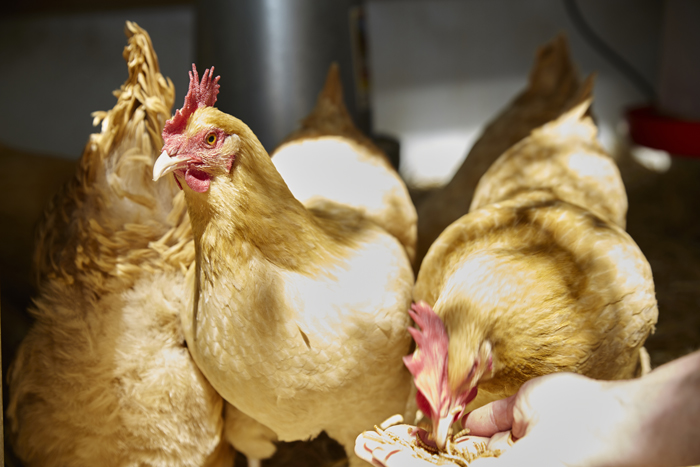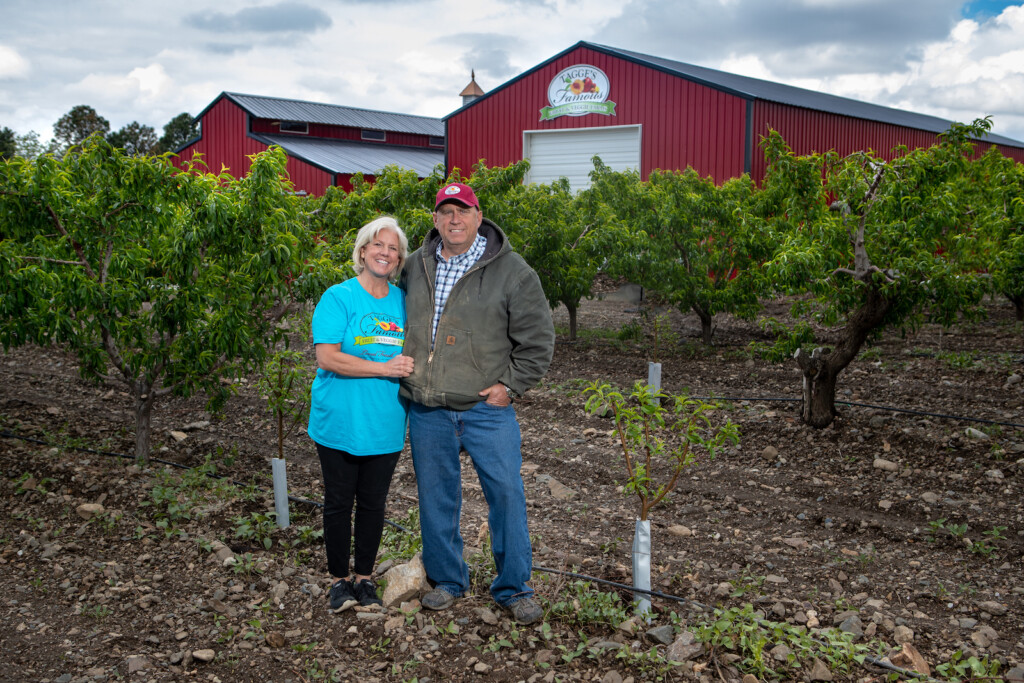
June 24th marks the 12th anniversary of the Urban Garden & Farm Tour, presented by Salt Lake City-based nonprofit Wasatch Community Gardens. Attracting seasoned urban farmers and beginning gardeners alike, this self-guided tour features 10-20 sites hosted by community members involved in a variety of organic cultivation activities.
Started amidst the urban homesteading and chicken craze of the early 2000s, this annual event initially featured local chicken coups, but it has since grown to include other aspects of urban farming and organic gardening. The tour’s longevity beyond the first wave of the urban chicken trend is largely due to this evolution as well as its ever-growing pool of site hosts. “Many of our first-time site hosts were tour attendees the year before,” explains Marybeth Janerich, Community Education Director for Wasatch Community Gardens.
Tarah and Chris Harlin are prime examples of tour attendees-turned-site hosts. Two years ago, having recently purchased a home, the young couple had just begun to consider the gardening possibilities in their new backyard when they attended the Urban Garden and Farm Tour. We wanted to start growing food for ourselves and plants to attract pollinators, but we weren’t sure where to start,” says Tarah.
Today, raised garden beds full of radishes, bok choy, and lettuce, as well as simple wooden houses for mason and carpenter bees have replaced the chain link fencing, cinder block piles, and invasive weeds the Harlins found behind their new house. “Our goal is to grow all our own peppers and tomatoes this year. We’re really excited!” Tarah says. Demonstrating that gardening is possible with animals around, she and Chris also tend to a flock of six chickens of all different breeds, as well as three dogs. “We are just so lucky to live in Salt Lake City. A lot of other cities don’t allow residents to own chickens,” she adds.
One of the gardens the Harlins visited on their first Urban Garden and Farm Tour was a permaculture forest garden called PlayGround East. This space is maintained by fellow tour attendee and long-time site host Jim French. This ⅛ of an acre plot behind a residence was bequeathed to him by the gracious homeowner, who is dedicated to community gardening and food growing, almost three years ago. While French remains the overseer, he is quick to explain that the success of Playground East is due to the contributions of around 60 people, who have either volunteered their time or donated seeds or plants. “Great things can happen when community members come together, ” he says. “Salt Lake just has a really special gardening community.” Playground East features an eclectic collection of peach trees, elderberries, a myriad of lettuce varieties, purple orach, and much more, among carefully planned (but not straight) irrigation mounds. Though French wants to the garden to essentially be a natural forest, he would ultimately also like to feature works of art throughout the space.
Though their gardening goals differ, the Harlins and French perpetuate one of Wasatch Community Gardens’ core values: sharing. “We are not experts,” says Wasatch Community Gardens Executive Director Ashley Patterson. “The tour is all about sharing ideas, not making money or telling people what they should be doing.” The Grateful Tomato Garden near downtown Salt Lake City, featuring chickens and small-space growing ideas, is not only the flagship garden of the organization but also the flagship site of the Urban Garden and Farm Tour.
 The good news for gardening newbies is that everyone seems to agree that organic gardening does not need to take over your time or finances. “Organic gardening, and especially permaculture, is mostly observing,” says French. “You just take note of what plants like which types of environments, and if you listen to your plants, your garden will be happy.” Tarah once tried growing echinacea and black-eyed susans in an extremely sunny, dry patch in her backyard she affectionately refers to as “the Sahara.” “I thought I could make them work because they are hardy plants. Once I stopped fighting to maintain them, I found that the grasses we planted after they were gone were so much easier to maintain and attracted more birds,” she says.
The good news for gardening newbies is that everyone seems to agree that organic gardening does not need to take over your time or finances. “Organic gardening, and especially permaculture, is mostly observing,” says French. “You just take note of what plants like which types of environments, and if you listen to your plants, your garden will be happy.” Tarah once tried growing echinacea and black-eyed susans in an extremely sunny, dry patch in her backyard she affectionately refers to as “the Sahara.” “I thought I could make them work because they are hardy plants. Once I stopped fighting to maintain them, I found that the grasses we planted after they were gone were so much easier to maintain and attracted more birds,” she says.
As exemplified by the Harlins and French (all of whom will act as site hosts for the 2017 tour next month), Janerich and Patterson are excited to recruit representatives from a variety of gardening and urban homesteading styles to act has site hosts. The primary duty of a site host is to convey her organic gardening passions to visitors and show them how this passion has been manifested, whether the end product is a beekeeping setup, chicken coup, or a collection of native Utah plants. “Tour attendees get more from interacting with site hosts than they would if they just visited the garden on their own,” Janerich says. “As our tour slogan says, ‘We grow gardeners.’”
If you are interested in adding your urban homestead or organic garden to the 2017 Urban Garden & Farm Tour this year, please visit wasatchgardens.org to review and submit an application.


